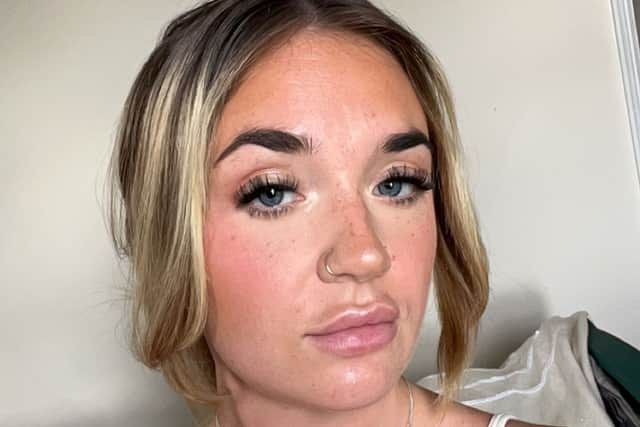Shopaholic’s warning over ‘buy now, pay later’ schemes that left her thousands of pounds in debt
and live on Freeview channel 276
A woman says young people should “stay away” from buy now, pay later firms - after ending up with £3,000 of debt. Chantal Derrick says using companies like Klarna and Very can feel like “free money”.
But the 26-year-old warned that paying later can put shoppers in a perilous financial situation. Six financial advisory groups warned in an open letter last month that interest-free credit might look attractive but can lead to spiraling debt.
Advertisement
Hide AdAdvertisement
Hide AdChantal, a traffic management worker from Northamptonshire, ended up £3,000 in debt using Klarna and VeryPay, which allows you to spread the cost of purchases at online store Very. She has since cleared the deficit and shut all her ‘buy now, pay later’ (BNPL) accounts.
Chantal said: “When you’re young and careless with money, it’s so easy to get sucked down the rabbit hole. It feels like free money, and makes it so much easier to buy something.
“But at the end of the month, you forget to send anything back. Then it comes to the time to pay it back and you think, ‘Oh s*it, I owe Klarna like £400’. People use it so recklessly, it’s just crazy.
“Some people obviously use it sensibly and that’s fine. But I feel like a lot of people of my generation don’t. I ended up in about £3,000 of debt. One day you look at your account and realise you owe so much money. It can get really overwhelming - everyone wants to keep up with the trends.”
Advertisement
Hide AdAdvertisement
Hide AdChantal, originally from Redcar, North Yorkshire, says it’s shocking how many places now use these services. She said: “I moved house and you can go into [homeware shops] and pay with Klarna at the checkout. People think it’s normal but it’s not.
“I’m an impulsive person - I’ve got a bit of a shopping addiction, so these services are dangerous for someone like me. Some of friends use it, they buy like one thing a month, and for them they can use it sensibly, but that’s not the case for many people.


“The best thing I did was pay everything off and close everything down. Now if I want something I just buy it out right, and if I don’t have the funds to pay it twice over, I don’t buy it.
“My advice to people thinking whether to use these services is absolutely don’t - stay away.” Chantal’s story comes amid increased scrutiny of the BNPL model.
Advertisement
Hide AdAdvertisement
Hide AdLast month, six financial groups including Citizens Advice and Martin Lewis’ MoneySavingExpert said in an open letter: “With the mounting pressure of the cost of living crisis, the provision of interest-free credit might look like part of the solution for people struggling with bills. But unaffordable credit that can lead to spiralling debt is never a solution.”


A spokesman for Klarna said: “Klarna is an interest free alternative to high-cost credit. We check a customer’s ability to pay on each and every transaction and restrict the use of our services after missed payments to stop debt from accumulating.
“These guardrails clearly work as our default rate is less than 1%, 30-40% lower than what you could see on a credit card”. In terms of regulation, we have repeatedly called for regulation of the BNPL sector and have not waited to bring in further protections to help customers, including the UK’s first credit opt out service.”
A spokesperson for Very said: “Very is regulated by the Financial Conduct Authority. We assess each customer using credit and affordability checks, and every customer has an interest free option with every purchase.
Advertisement
Hide AdAdvertisement
Hide Ad“Customers are regularly reminded of when they need to make payments. We support customers in financial difficulty by freezing payments, interest, and charges, and referring them to Step Change Debt Charity when appropriate.”
